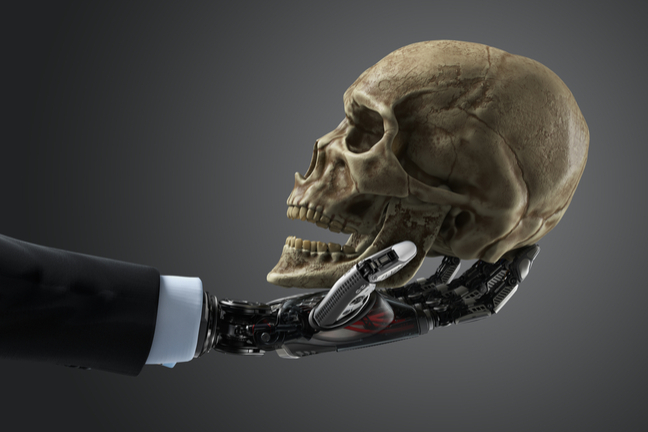While artificial intelligence (AI) has the potential to bring about numerous benefits and advancements, it is important to recognize that there are also potential risks and dangers associated with its development and deployment.

Here are some of the key concerns regarding the dark side of AI based on my recent reviews and research:
- Job Displacement: One of the primary concerns is the potential impact of AI on employment. As AI technology advances, there is a risk that automation and AI systems could replace human workers in various industries, leading to job loss and economic disruption.
- Bias and Discrimination: AI systems are only as good as the data they are trained on. If the training data contains biases or reflects existing societal prejudices, AI algorithms can perpetuate and amplify these biases, resulting in discriminatory outcomes in areas such as hiring, lending, and law enforcement.
- Privacy and Security Risks: AI systems often rely on collecting and analyzing vast amounts of personal data. This raises concerns about privacy infringement and the potential for misuse or mishandling of sensitive information. Additionally, as AI systems become more sophisticated, they may pose security risks, such as being vulnerable to hacking or manipulation.
- Ethical Implications: AI raises complex ethical questions. For example, autonomous weapons powered by AI can pose threats to human lives, and the development of AI in certain areas, such as deep fakes or misinformation, can undermine trust and have harmful social implications. Ethical considerations surrounding AI decision-making and accountability also come into play.
- Lack of Transparency and Explainability: Deep learning algorithms, which are a subset of AI, are often considered black boxes, making it challenging to understand how they arrive at their decisions or predictions. This lack of transparency can be problematic, especially in critical areas like healthcare or legal systems, where explanations and justifications are necessary.
- Superintelligence and Control: There are concerns about the potential emergence of superintelligent AI systems that surpass human capabilities. If AI systems become self-improving and autonomous to an extreme degree, there could be risks of losing control over these systems, leading to unpredictable and potentially undesirable outcomes.
Addressing these risks and dangers requires a multi-faceted approach involving collaboration between policymakers, researchers, industry leaders, and society as a whole. It involves implementing ethical frameworks, ensuring transparency and accountability in AI systems, promoting diversity and inclusivity in AI development, and fostering ongoing research into AI safety and security. By being aware of these potential risks and actively working to mitigate them, we can strive to harness the benefits of AI while minimizing the negative impacts and promoting the responsible and beneficial use of this transformative technology.
Category: AI
Tags: Miscellaneous